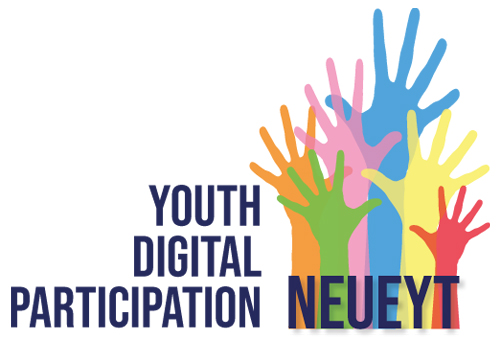Pistessolidaires has joined forces with European partners (Italy, Norway, North Macedonia and Cyprus and Greece) to promote active citizenship among young people. Within the framework of the project called NEUEYT, the partners have identified methods to involve young people in civic and democratic processes, to develop their civic participation and their capacity to act.
the project targets young people aged 16 to 20, especially those under-represented in political decision-making and those living in rural areas.
PistesSolidaires proposed to the Maison Familial etRurale of Mont, a rural village, to implement “the 6 steps for participation in civic and democratic processes” with 15 trainees of the secondary school, aged 16-17
Step by step, the trainees were invited to :
– to become aware of the different current societal challenges by taking ownership of their environment. At this stage, the trainees discussed environmental protection, climate change, inequalities, solidarity, sustainable development, access to information and new technologies.
– To reflect more specifically on situations that affect their daily lives or that challenge them in particular, and to choose one of them to act on. By starting with their needs, young people become involved in the process of improving the situation.
They explore the causes and consequences and find perspectives for concrete action by establishing a diagnosis of their knowledge. The collective construction allows for the exchange of points of view and argumentation in order to fully understand the problem they are facing. The debates focused on food waste, equality and respect for the environment.
– seek solutions to take part in the evolution of the situation and be an active citizen. To encourage critical thinking and to demonstrate to the trainees that they have a place in the democratic process, the trainees share their diagnosis with the members of the Board of Directors and collectively build solutions.
– act collectively by setting up their concrete actions that can be carried out by the group (trainees, board members, teachers, partners if necessary)
– Then comes the time for reflection, for taking a step back from the contributions of each person to identify the stages of involvement necessary for active citizenship.
This gradual approach to the democratic process gives young people confidence in their ability to express themselves, propose and defend their ideas.
The young people felt useful and empowered in their role as citizens. They were listened to by decision-makers from the MFR of MONT and encouraged in the collective elaboration of solutions for their community.
Young people will be soon ready to share their proposed actions with other classes and teachers. They have considered different media, including digital, to explain their proposals and the actions to be implemented.



















